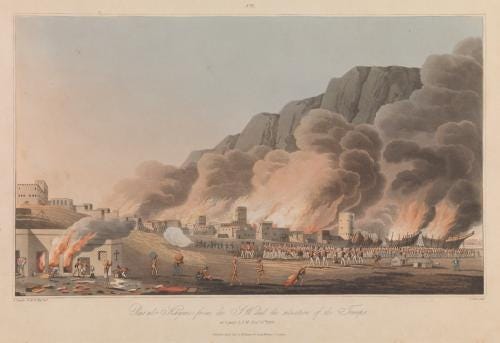The British conquest of the Arab Gulf Emirates
And the construction of sovereign nations from the conquest by the conquered

Historical antecedents
The first human migrations to the territory that is today the United Arab Emirates possibly occurred 130,000 years ago. With the passing of time, human settlements emerged, such that six distinct cultural periods have been identified, from 3,200 BCE until the arrival of Islam. These societies maintained extensive trade with civilizations of the Mesopotamia, Persia, and the Indus Valley, most likely based in the copper finds in the Hajar Mountains of the Arabian Peninsula.
Islam came to the region in the seventh century. The Prophet Muhammad sent a letter to the rulers of Oman in the southeastern region of the Arabian Peninsula in 630 CE, resulting in their travel to Medina and their conversion to Islam. This enabled their unification, such that they were able to drive the Persian Sassanids—an unpopular foreign presence that dominated the c…


